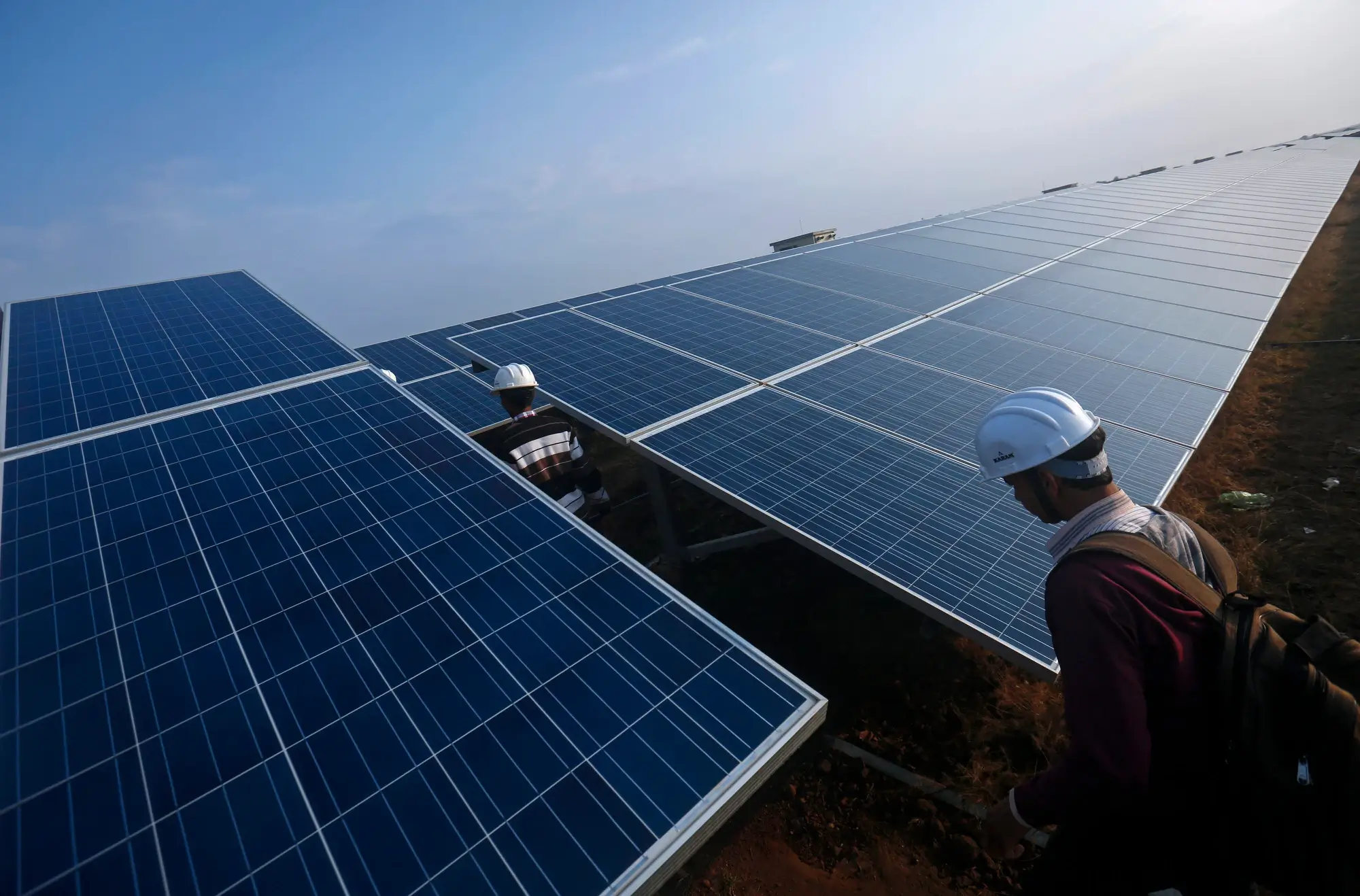The global energy landscape is undergoing a historic transformation. What was once dominated by fossil fuels—coal, oil, and natural gas—is now being reshaped by renewable energy, sustainability goals, and technological innovation. Businesses sit at the very center of this change, as both consumers and producers of energy. Their decisions not only influence profitability but also shape the environmental and social future of the planet.
In today’s business environment, energy is no longer a mere operational cost. It has become a strategic driver of competitiveness, innovation, and reputation. Companies that adapt quickly to evolving energy trends can reduce risks, improve efficiency, and capture new markets, while those that resist change risk being left behind.
The Global Energy Shift
The energy industry is shifting from centralized, fossil-fuel-based systems toward more decentralized and diversified sources. Renewable energy—solar, wind, hydro, and geothermal—has gained significant momentum. According to the International Energy Agency (IEA), renewable energy sources are projected to account for over 60% of new power capacity worldwide by 2030.
Businesses are driving much of this transition. Corporations like Apple, Amazon, and Google have committed to powering their operations with 100% renewable energy. Automotive giants such as Tesla and General Motors are spearheading the shift to electric vehicles, further accelerating demand for clean energy solutions.
This global energy transformation is not only about reducing emissions; it’s also about reshaping markets, creating jobs, and fostering innovation. For businesses, energy is no longer an expense to minimize—it is an investment opportunity.

Energy as a Competitive Advantage
For decades, businesses viewed energy costs as a burden to be minimized. Today, the narrative has shifted. Companies that embrace energy innovation can achieve long-term competitiveness.
-
Cost Savings: Renewable energy costs have plummeted, making solar and wind in many regions cheaper than fossil fuels. Businesses that invest in renewables or energy efficiency can drastically reduce operating costs.
-
Resilience: The instability of global oil and gas markets—worsened by geopolitical tensions—has highlighted the importance of energy independence. By investing in renewables, businesses shield themselves from price volatility.
-
Reputation and Branding: Consumers increasingly prefer sustainable brands. Businesses that embrace green energy are often seen as forward-thinking and socially responsible, boosting loyalty and attracting investors.
Energy strategy has become an integral part of corporate identity, much like digital transformation was in the previous decade.
The Role of Technology in the Energy-Business Nexus
Technology plays a central role in bridging business and energy. Artificial intelligence, blockchain, and the Internet of Things (IoT) are driving new efficiencies and innovations.
-
AI and Data Analytics: Businesses can use AI to optimize energy use in real-time, predict equipment failures, and reduce waste. Smart factories and offices already use AI-driven systems to lower consumption without sacrificing performance.
-
Blockchain and Energy Trading: Blockchain enables peer-to-peer energy trading, allowing businesses and individuals to buy and sell excess renewable energy directly. This decentralization could redefine traditional energy markets.
-
IoT and Smart Grids: Connected devices allow businesses to monitor and control energy use with precision. Smart meters and smart grids help balance supply and demand, creating a more resilient energy ecosystem.
By embracing these technologies, businesses are not just reducing costs but actively shaping a new, smarter energy economy.
Sustainability and ESG Pressures
Environmental, Social, and Governance (ESG) factors have become non-negotiable for modern businesses. Investors, regulators, and consumers demand accountability on how companies manage their environmental impact.
Energy choices play a central role in ESG performance. Companies that fail to adopt clean energy risk reputational damage, regulatory penalties, and exclusion from investment portfolios. On the other hand, businesses that embrace renewable energy and carbon reduction strategies attract sustainability-focused investors and customers.
For example, major financial institutions like BlackRock now prioritize sustainability in their investment decisions. Governments are also imposing stricter regulations, from carbon taxes to emissions reporting. Businesses must align their energy strategies with these expectations or risk being left behind.
Challenges Facing Businesses in the Energy Transition
Despite the clear benefits, the business-energy transition is not without challenges.
-
High Initial Investment: While renewable energy is cheaper long-term, upfront installation costs can be prohibitive for small and medium-sized enterprises (SMEs).
-
Infrastructure Limitations: Many regions still lack the infrastructure to support large-scale renewable integration. Storage solutions like batteries remain expensive.
-
Regulatory Uncertainty: Businesses often struggle with shifting government policies, subsidies, and tax incentives related to energy. Inconsistent frameworks make long-term planning difficult.
-
Workforce Reskilling: The transition to a clean-energy economy requires new skills. Businesses must invest in reskilling their workforce to adapt to evolving technologies.
Addressing these challenges requires collaboration between businesses, governments, and international organizations.
Opportunities in the Energy-Business Intersection
Despite the hurdles, the opportunities are immense. The energy transition is one of the biggest business opportunities of the 21st century.
-
New Markets: Renewable energy technologies, electric vehicles, and energy storage are creating trillion-dollar markets. Businesses that innovate in these spaces can capture significant growth.
-
Green Financing: The rise of green bonds and sustainable finance allows businesses to fund clean energy projects while appealing to socially conscious investors.
-
Circular Economy Models: By integrating renewable energy with waste reduction and recycling, businesses can create closed-loop systems that reduce costs and emissions simultaneously.
-
Global Partnerships: Cross-industry collaborations—such as between energy companies and tech firms—open new possibilities for innovation.
Businesses that position themselves early in this transition will not only survive but thrive.
Case Studies: Businesses Leading in Energy Innovation
-
Tesla: Beyond electric cars, Tesla has revolutionized energy storage with its Powerwall and large-scale battery solutions, proving that energy can be both sustainable and profitable.
-
Google: By investing in renewable energy projects worldwide, Google has become one of the largest corporate buyers of clean energy, setting a benchmark for other businesses.
-
Ørsted: Once a fossil-fuel-based utility, Ørsted reinvented itself into a global leader in offshore wind power, demonstrating how businesses can successfully pivot toward sustainability.
These examples show that energy innovation is not just possible but highly profitable when executed strategically.
The Road Ahead
The relationship between business and energy will only deepen in the coming decades. As the global population grows and energy demand rises, businesses must navigate the dual challenge of meeting demand while reducing environmental impact.
The winners of tomorrow will be the companies that integrate sustainability into their core strategy, not as a marketing tool but as a genuine driver of innovation and growth. Those that ignore the energy transition will face rising costs, reputational risks, and declining relevance.

Conclusion
The business and energy nexus is shaping the future of the global economy. Clean energy, technological innovation, and sustainability pressures are rewriting the rules of competition. Businesses that embrace this transformation stand to gain not only financial rewards but also long-term resilience and social trust.
In the coming decades, energy will no longer be seen as just fuel for businesses—it will be the foundation of strategy, innovation, and identity. The companies that recognize this today are already building the blueprint for tomorrow’s sustainable and prosperous economy.





